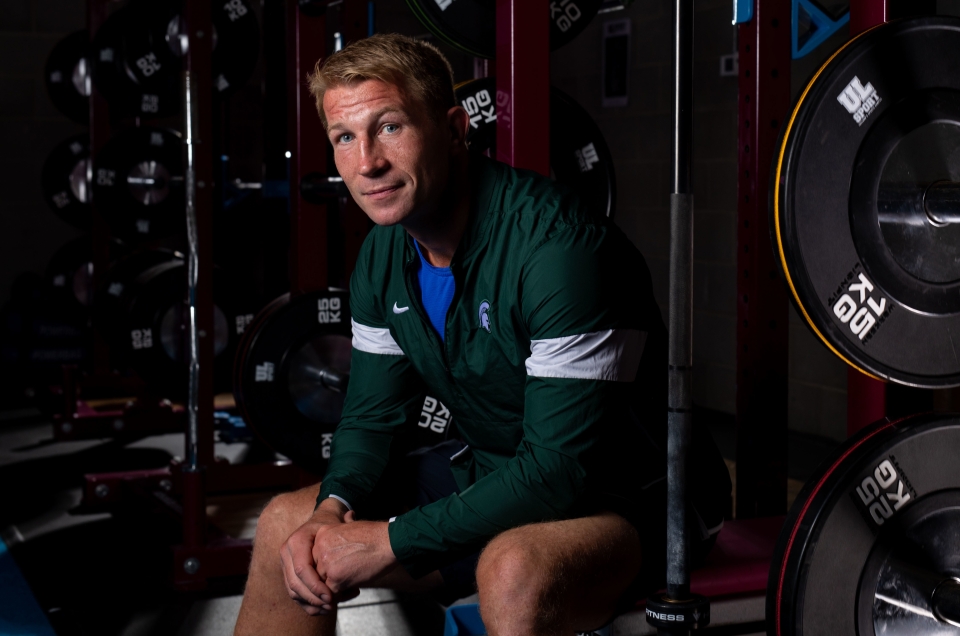
Munster and Ireland rugby legend Jerry Flannery enjoyed a decade at the top level of his chosen sport, but retirement comes calling a lot earlier to sportspeople than in your average profession. When the Limerick man saw the end of his playing career on the horizon, he knew he needed to take a look at what would come next and determine how he could forge a new career, still working in the sport he loved and with so much more to give.
Jerry explained that it became apparent he was entering a time of transition: “I'd been playing professional rugby for over 10 years and I had quite a few injuries so I knew that I would probably start having to transition out of the sport. I didn't feel that, you know, I was ready to just go from playing to straight into something else.”
“I felt I needed a period to upskill, primarily to make myself feel more confident in what I was going to go at next.”
For Jerry, a return to education made sense, in an environment that was familiar to him.
“I didn't know exactly what I was going to do but I felt the Masters in UL was something that facilitated that [upskilling period] for me really, really well.
“I had already spent ten years on the campus training with Munster, so for me, I was very aware of how good the facilities were. How prestigious the University was and how good the lecturers were so I thought that this made the transition quite seamless for me to be able to stay on campus. It was a perfect fit.”
Jerry opted for the Masters in Sports Performance in 2012. His legion of fans will already know that he went on to take a professional coaching role in the Premiership in England.
Looking back at the decision to return to university he said: “You know, retiring is quite a difficult process. I tried to minimise the amount of change in my life and [in UL] I knew some of the lecturers there, I knew there was a real good quality and calibre there.”
In examining what the course itself offered to him, Jerry said: “One of the first things you have to have as a coach is technically to be competent and when you can be technically competent but you can back it up with science it just makes you so much more confident as a coach to deliver to the player.

“I felt I needed a period to upskill… to make myself feel more confident in what I was going to go at next.”
“The main thing for the players is that they feel good and that they trust you and that they feel empowered but for you as a coach to be able to deliver it with real conviction - to know that science is backing this up, this isn't something that I just felt and you feel like you have that behind you, you can coach with a lot more conviction and that just translates into hopefully, you know, better performances from your players.”
Embarking on a new career for anyone is daunting, Jerry said: “You know you're always going to feel a little bit of imposter syndrome because you're starting off on something new and you know your competence is probably at the lowest level it's going to be.”
Having a Masters behind him, he felt, empowered him to feel more confident in the journey. “Having a professional qualification, it gives you a little bit of rigor behind your work processes. It helps you with a lot of practical stuff that you can go and apply straight away so it gave me a really good foundation for kicking on in the next step of my life.”
If you’re curious about what you might achieve through postgraduate studies, you’ll have all the support you need at University of Limerick. #StayCurious
Stay Curious and register your interest to stay informed about postgraduate and professional courses at UL.



